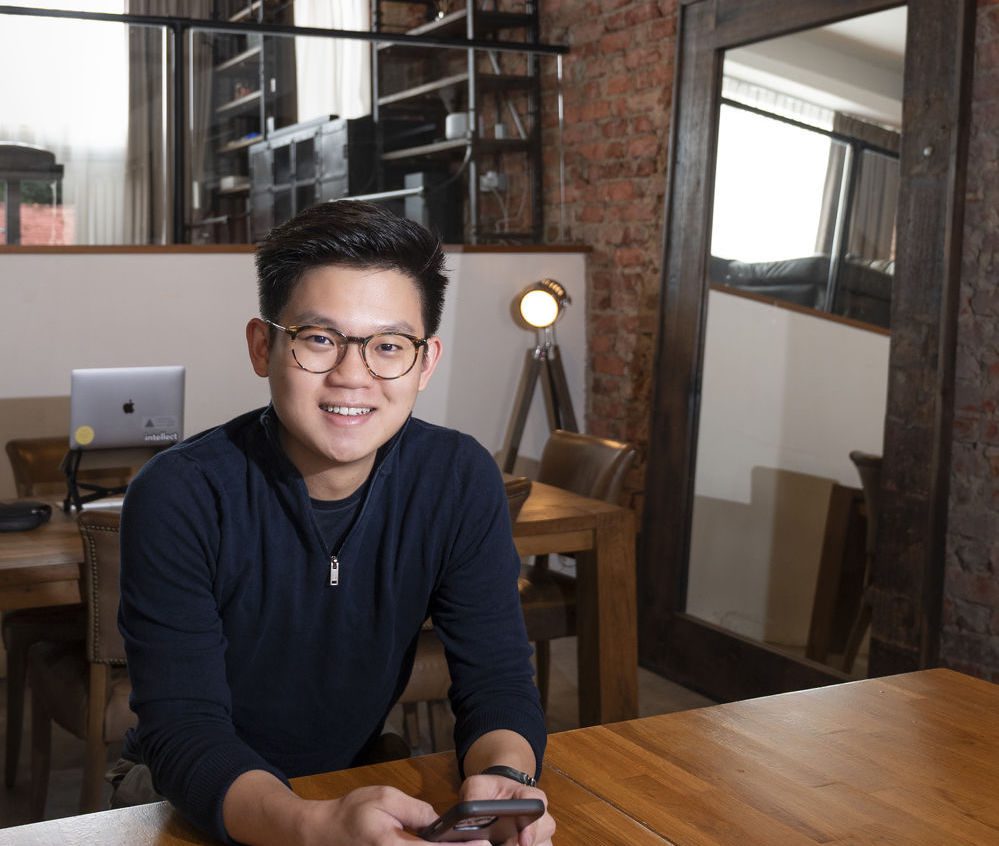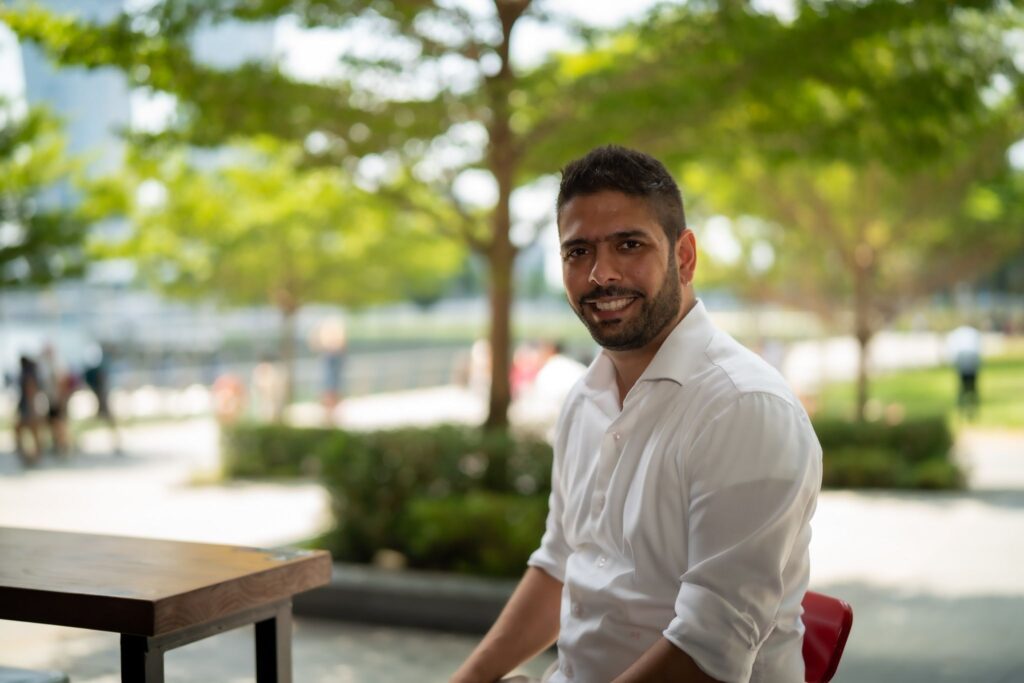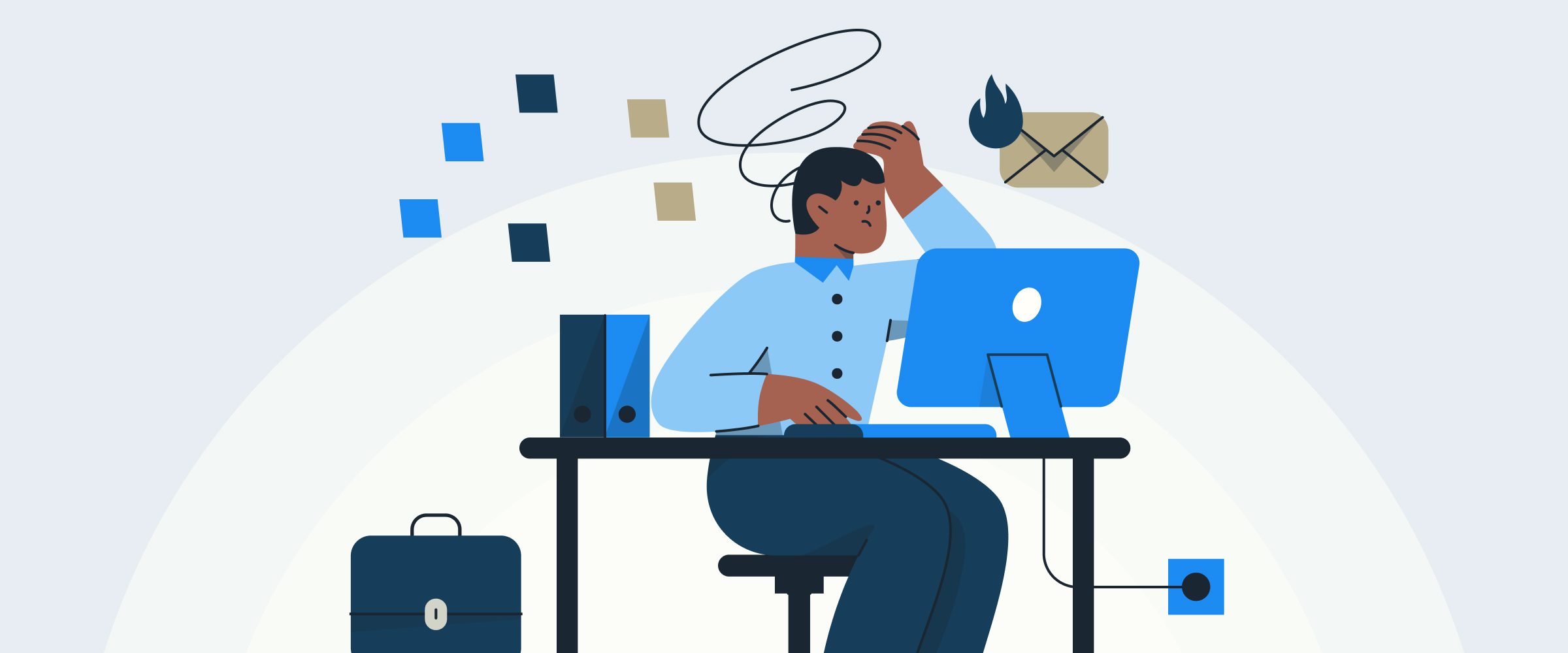Think of an “entrepreneur”, and the image of a self-made, confident businessperson who has it all probably comes to mind.
Yet many don’t see “the rejections and low lights” faced in the background, Theodoric Chew says.
Intellect is the second startup Theodoric has started. As such, he’s witnessed how the title of “founder” has exploded in popularity over the years. Iconic entrepreneurs such as Mark Zuckerberg and Steve Jobs have captured the hearts and minds of young people all over the globe.

In truth, behind the veneer of success hides the constant setbacks, stressful days, and nagging doubts that never go away. All of this takes a toll on one’s mental wellbeing.
At the same time, mental health in Singapore is still quite a taboo topic. A 2018 study found that 44.5% of respondents associated mental illnesses with negative terms like “stupid”, “dangerous”, “crazy” and “weird” and 44.6% said they would feel “very embarrassed” if they had a mental illness.
But entrepreneurs don’t have to suffer alone. More resources are being made available by the day, such as mental health helplines, affordable counselling sessions, and mental wellbeing apps.
The question is whether they have the time and space to reach out and get help for themselves. This is where self-care comes in.
Work-life boundaries are (almost) impossible to establish
According to a study by the National Institute of Mental Health, 72% of entrepreneurs are directly or indirectly affected by mental health issues.
For instance, when establishing their company, entrepreneurs often find themselves almost permanently in “startup mode,” explains Theodoric.
But grinding 24/7 in hopes that their company will be successful isn’t easy on the mind. A UC Berkeley study found that entrepreneurs were significantly more likely to experience depression, ADHD, substance use conditions, and bipolar diagnosis in their lifetime.
Symbo co-founder and co-CEO Adrit Raha concurs that “the startup mode never goes away—the solution is to find a balance and carve out time between work and your personal life.” But he also adds that “it’s okay that sometimes family and work blur into each other; this is where time management comes in.”

As entrepreneurs, you are constantly fighting against time. Trying to complete new tasks that pop up every day but also long-term tasks that need your undivided attention.
That’s why the co-founder and CEO of Brankas, Todd Schweitzer, concurs that prioritisation is absolutely necessary, but difficult to achieve, particularly when there’s the weight of an entire organisation relying on you.
“The main challenge I face is the pressure to deliver whilst taking care of my company and my employees,” he explains. “As a founder, there is pressure to succeed, solve problems, and take care of stakeholders.”
In fact, Todd reveals that many of his employees have moved their families to join his company, which puts additional pressure on him.

The shift to hybrid work or remote work arrangements has only made things harder. “Working from home has blurred the lines for me, especially not knowing when to go offline,” he explains, adding that it is still “a work in progress for me.”
Todd’s struggle of not knowing when to be offline is something many working adults can likely empathise with. While he constantly considers taking a mental health break, such ideas are always negated by the desire to “be a responsive founder, too.”
How he resolves this is by relying on a second-in-command: his chief of staff.
When Todd had gone for a short weekend trip to destress, he enacted his chief of staff to be a gatekeeper of sorts, where he “takes my place for now and will decide if the task is a priority and needs support right away.”
Despite this, Todd admits that he would “still work a few hours during my holiday, but afterwards, feel cheated of my downtime.”
Finding and establishing a boundary between online and offline is no mean feat for the regular man-on-the-street, much less busy entrepreneurs. Having a routine of self-care might be a good starting point for drawing those lines.
Here’s what these entrepreneurs recommend trying.
1. Take time out of your day for self-care
First, take time out of your busy schedule to implement simple self-care practices like taking a walk, meditating, or even chatting with a colleague about non-work-related topics.
How Adrit does this, for example, is by “being active through running, carving out time for my family, and connecting with like-minded founders.”
“Since taking up running, I feel much fitter and my quality of sleep has become better too,” he says.
Adrit strongly advises young entrepreneurs to find their “running”—whatever brings distraction, calm, and clarity into their lives—and practice it regularly.

“Also, never underestimate the importance of relationships and time spent with friends and family,” he adds. These are what motivate him to improve in his personal growth, both as an entrepreneur and as a person.
A “core support group of family, friends, and other founders” has helped Theodoric get through the rough times, too. “Through this network, I have been able to relate to similar folks who face the same challenges,” says Theodoric. “It has helped me feel grounded and reduce my worries that I am facing it alone”.
Setting clear boundaries has been crucial to Theodoric in his self-care practice as well. This can look like “blocking out time for your own tasks, having time with yourself outside of work, getting adequate sleep, and even setting out time to watch your shows and movies,” he explains.
Even building good time management routines into your day can be a way of taking care of yourself. Todd, for instance, meets with his chief of staff “every morning and sorts through what is needed to be done through our combined to-do list. From there, we prioritise what I need to do, what he needs to do, and what is given to others.”
According to Todd, this has helped his mental wellness tremendously.
2. Practice self-growth and self-reflection
Secondly, self-reflection on your areas of improvement can help you understand where to grow both in the workplace and in your personal life.
“Self-reflection helps me to maintain realistic expectations,” Theodoric says. “You will face lots of rejections, have setbacks, and most things take time to get it running, so it’s important to have patience and perseverance”.
For Todd, the entrepreneurship path has been a journey of building up mental resilience. “Hearing no’s 90% of the time from stakeholders, family members, customers” is mentally and emotionally challenging, he explains, but “receiving three yes’s from that can be much more rewarding.”
Also, he has also started seeing the no’s as “valuable data points to know where to head to or pivot to.”
By staying positive, such negative situations are less likely to “trigger less emotional reactions and make you loathe yourself less since you understand that rejections help you and do not break you,” Todd adds.
3. Don’t forget to nurture yourself
Lastly, as you nurture your company, don’t forget to nurture yourself. After all, you can’t give your company anything if your own tank is empty.
Taking the brave step to create something on your own or with a team of people can be challenging at first, but knowing you can bounce back as you have a solid mental wellness foundation can help you in the long run.
One of the ways Todd does this is by ensuring that he has regular downtime where he can rest and recharge.

“As founders, you need a fresh brain to creatively solve all the abstract problems you face,” he explains. “Even though I am not a neuroscientist, from my experience I do know that being underslept can result in a loss of creativity which hinders the way you solve problems for your company.”
For Theodoric, working with his therapist and Intellect coach has allowed him “to unplug, which can be easily forgotten when starting the [founder] journey,” he explains.
“As a founder, you have a different level of passion and work involved compared to being an employee [so] it’s important to make a conscious effort to see my therapist, coach, and take time to myself,” Theodoric adds.
Take care of yourself first
Since implementing self-care practices in their daily lives, entrepreneurs Todd, Raha, and Theodoric have felt improvements in their mental wellness, especially with decreased stress, anxiety, and burnout levels.
Placing importance on their mental health has allowed these entrepreneurs to find some balance in their daily lives, even while managing a team and building a company.
The key takeaway to all current and future entrepreneurs: always be mindful about taking care of yourself first, as neglecting your mental wellbeing does more harm than good in the long run.






